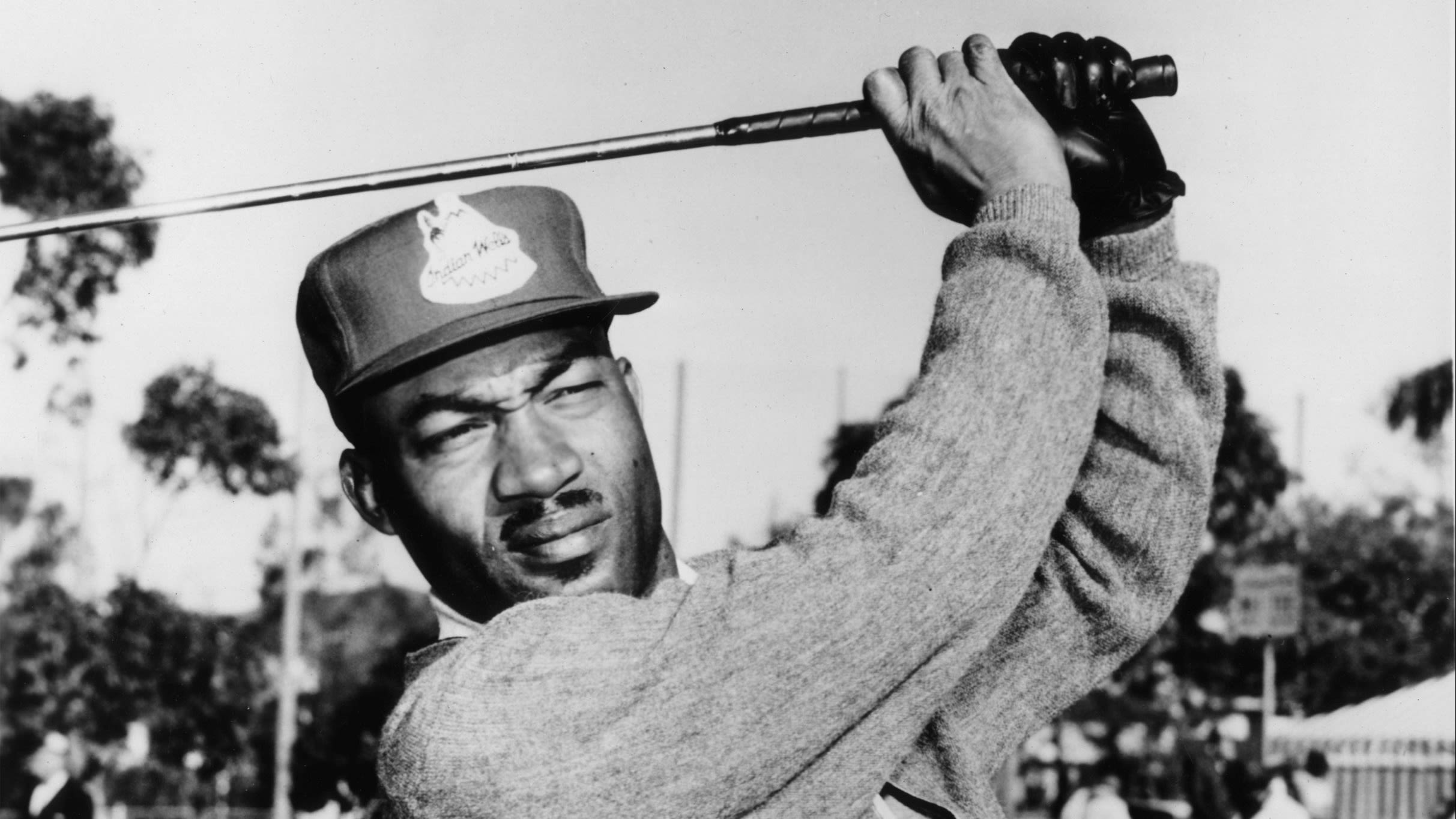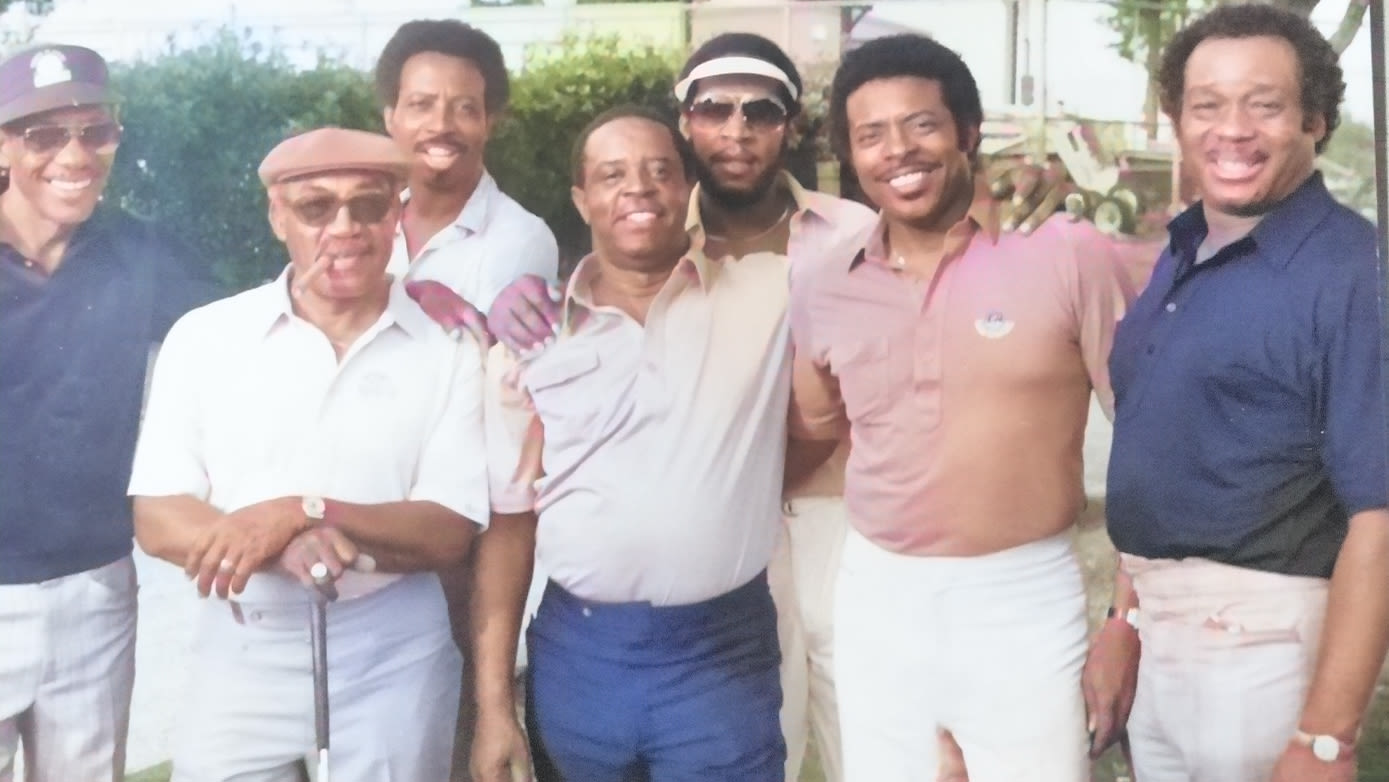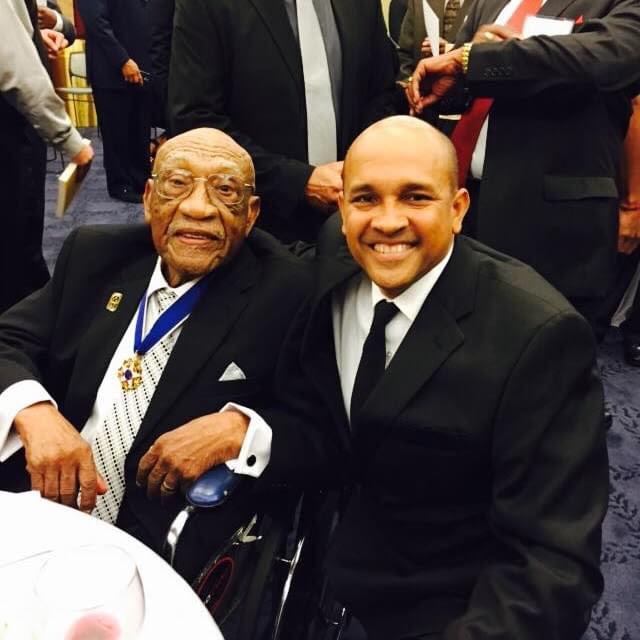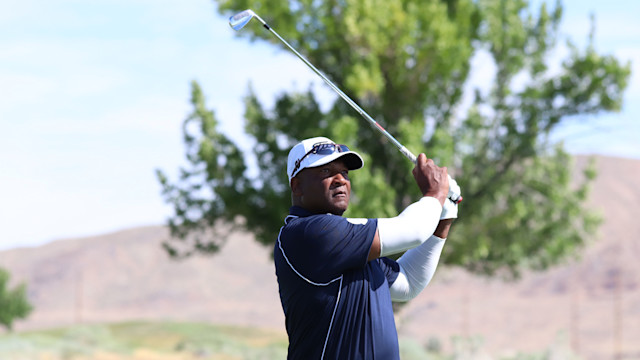Game Changers
Remembering the Legendary Charlie Sifford
By Jesse Dodson
Published on

Dr. Charlie Sifford will forever be known as the man who broke the color barrier in professional golf.
At the end of the 1960 season, Sifford was given an “approved player” card
, making him the first Black golfer to play on the PGA TOUR (then run by the PGA of America) a year later in 1961. That was when the PGA of America also struck down its Caucasian-only clause and, by 1964, Sifford, then 42, was a full member of what's now the PGA TOUR.
His barrier-breaking accomplishments were recognized in and out of golf. Sifford became the first Black golfer inducted into the World Golf Hall of Fame in 2004, and his legacy influenced countless tour players, most notably Tiger Woods, who named his son Charlie in his honor.
The North Carolina native also received an honorary degree from the University of St Andrews as a Doctor of Laws in 2006 and was awarded the Presidential Medal of Freedom in 2014 by former president Barack Obama.

Sifford at the Swilican Bridge after receiving his degree.

Sifford receiving the Presidential Medal of Freedom from President Obama in 2014.
At the age of 92, Sifford passed away in 2015. Yet his impact on the game continues to be felt. Sifford influenced the PGA of America Golf Professional — on the lesson tee, in the golf shop and beyond.
As the PGA of America celebrates and honors Black History Month, PGA of America Golf Professionals Renee Powell, Leonard Jones and Kennie Sims reflected on how Sifford’s career motivated their own.
Each has taken notes out of Sifford’s metaphorical yardage book for guidance on how to make golf more accessible.
"He was an inspiration"
While Sifford was the first Black member of the PGA Tour, Renee Powell was the first Black woman to become a PGA of America Member and the second Black professional to play on the LPGA Tour. The Siffords and Powells became close from spending time together at various United Golf Association (UGA) tournaments in the 1960s.
“Charlie has always been like an uncle to me,” says Powell, the PGA of America Head Golf Professional at Clearview Golf Club in Ohio. “He was always so supportive in everything I did.”
Her first memory of Sifford is of them competing in the UGA Nationals in Washington D.C. in 1959. Powell was only 13, but clearly remembers Charlie’s ever-present cigar. More importantly, she remembers how he endured the racial insults, threats and other indignities in order to play—the same hurdles Powell faced in her career.

Renee Powell was the first Black woman to play on the LPGA Tour.
“Knowing the history of Charlie and what he went through in the ‘60s to play on the Tour, I think anyone when they are breaking barriers can always be a role model,” Powell said. “I went to the LPGA Tour in 1967, Charlie was playing on the PGA Tour in 1960, so he was an inspiration. I would talk to Charlie and some of the other African American golf pros and compare notes.”
After a 13-year career on the LPGA Tour, Powell retired from touring in 1980. She spent time teaching golf in Africa and Europe before returning to Ohio. In 1996, she became a PGA of America Golf Professional.
Her award-winning advocacy for diversity, equity and inclusion in golf involves her efforts with the Clearview Legacy Foundation and its mission of “using golf as a tool to reach youngsters, minorities, seniors, troubled individuals, women military veterans and those with mental and physical challenges.” It also preserves Clearview Golf Club as the only golf course designed, built, owned and operated by an African American, her father Bill, who was granted PGA of America Membership in 1998. His Membership year was retroactively changed to 1962, the year the caucasian-only clause dropped. He passed away in 2009 and Renee continues the operations today.
Now 77, her passion for the game continues. Her career has led to her induction into 12 Halls of Fame. She was inducted into the PGA of America Hall of Fame in 2017, joining her father as its first father-daughter duo.
“I love the game of golf, I absolutely love this sport,” Powell says. “I think everybody should play golf.”

Powell received the inaugural Charlie Sifford Award in 2022 (above) from the World Golf Hall of Fame, which honors his groundbreaking achievements through perseverance, confidence, respect and adaptability.
One shot turns into a lifetime of memories
For PGA of America Lifetime Member Leondard Jones of Dallas, Texas, Sifford’s most important lesson was in perseverance.
“Charlie was the type of guy that wouldn’t take no for an answer,” says Jones, the longtime Head Professional at Cedar Crest Golf Course in Dallas.
“What he had to go through, which I experienced some myself, I don't think anybody but him could have done it. He was designated to be the one.”
Leonard Jones, PGA
Jones first met Sifford at a United Golfers Association (UGA) event in Cleveland at Seneca Golf Course.
“I had heard of him, of course, but had never met him until I got paired with him for the first two rounds,” Jones remembers.
With Jones’ inconsistent play off the tee, they barely spoke on the front nine. That changed after making the turn.
“On the back nine, we were on a par three and I overheard him tell his caddie that you can’t go for the pin because the ball won’t stay on the green," he recalls. "I hit first and put the ball about a foot from the hole.”
The shot caught Sifford’s attention and a friendship was born.
Jones’ 12-year playing career included five wins on the UGA Tour. In 1986, he became a PGA of America Golf Professional, working as Head Professional of L.B. Houston (now Luna Vista) and Cedar Crest Golf Courses.

From left to right: JW White, Charlie Sifford, Lewis Matthew, Lee Elder, Deermeat Mims, Leonard Jones, Pete Brown at Cedar Crest in Dallas.
When Sifford’s playing schedule would go through Dallas, they would continue to get together for dinners and rounds of golf.
As a PGA of America Golf Professional, Jones took on the role of mentor by creating the Leonard Jones Minority Junior Golf Foundation in 1997, which provided access to underprivileged youth to learn, play and work at the two golf courses. He was also instrumental in bringing the First Tee initiative to Dallas at the two facilities he operated.
“We let them play golf for free, we would teach them for free, provide them equipment and teach them about life,” says Jones. “Even though we were providing them an opportunity, we taught them they had to earn it. We’d have them working on the range, in the clubhouse or the concession stand. We wanted them to learn to be responsible.”

(Hayden Lewis/PGA of America)
Through the Foundation and First Tee programs, Jones helped provide more than 50 full-ride college scholarships. Ira Molayo, PGA, the current Director of Golf at Cedar Crest and the first Black PGA of America Member to be elected as an officer in the Northern Texas PGA Section, went through the program as a kid at Cedar Crest.
Among his many honors, Jones has been inducted into the Texas Black Sports Hall of Fame (1997) and National Black Golf Hall of Fame (1998).
Carrying on the Sifford legacy through opportunity
Currently the Senior Director of Impact for the PGA of America Reach Foundation, Kennie Sims, PGA, has long been inspired by Sifford’s career.
When Sims had his sights on playing professionally in the '90s, he had dinner with Sifford, who offered a compliment that still resonates today.
“Dr. Sifford shared with me some of the challenges he faced while pursuing his passion for golf, including the pressure to support his family through his earnings,” says Sims. “He then gave me a compliment that has stayed with me and continues to inspire me to this day: He told me that I would have done an excellent job if I had faced the same challenges as him.

Sifford and Sims after Sifford was awarded the Presidential Medal of Freedom.
“Today, as a PGA of America Golf Professional, I strive to open doors and provide opportunities for others who share my background. I am proud to be a part of something that Dr. Sifford made possible, and I am committed to continuing my journey with the PGA of America.”
Sims spent over a decade as the Vice President of Golf Operations for Tampa Sports Authority, overseeing three City of Tampa-owned golf courses: Babe Zaharias, Rogers Park and Rocky Point.
Now at the Home of the PGA of America in Frisco, Texas, Sims works to open more doors to the game and the industry through programs such as PGA WORKS. One of the four pillars of PGA REACH, PGA WORKS provides fellowships, scholarships and championships to inspire and engage talent from diverse backgrounds.
“I am honored to be continuing the legacy of Dr. Sifford by working for the PGA of America, the institution he integrated in 1961. I am committed to continuing the work he started by providing equal opportunities for all people, especially those who look like me,” Sims says.

“I find great satisfaction in knowing that I am contributing to these programs that align with the challenges Dr. Sifford faced and the courage and bravery he showed. He would be proud of what we are doing.”
Kennie Sims, PGA



